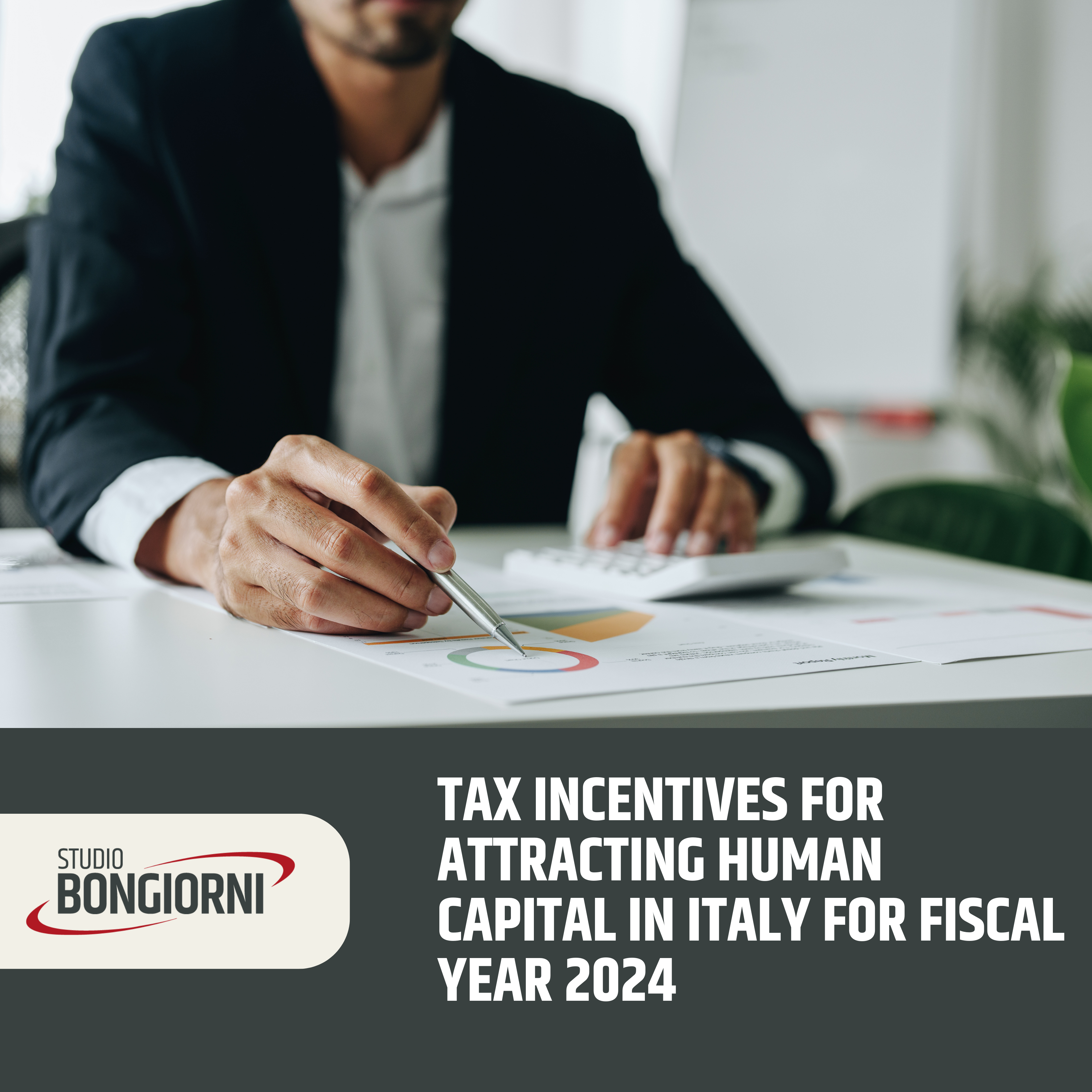Tax incentives for attracting human capital in Italy for Fiscal Year 2024
Italian Government has approved a new legislative decree introducing substantial modifications to the special tax regime for inbound workers relocating to Italy.
Specifically, the changes have been made to the tax benefit for “impatriates workers”, as outlined in our previous article called “Tax incentives for attracting human capital in Italy for the fiscal year 2023). Please note that the others tax incentives and in particular TAX BENEFITS FOR RESEARCHERS AND PROFESSORS and FAVORABLE TAX REGIME FOR NEW RESIDENTS have not changed.
This decree restricts the existing inbound tax regime by tightening the eligibility criteria and imposing a cap on the maximum income that can be exempted from taxation.
The updated regime will apply to individuals becoming tax residents of Italy in 2024. Additionally, there’s a provision for individuals enrolled in the Italian Registry for the Resident Population (“Anagrafe”) by December 31, 2023, through a grandfathering clause.
Background (up to the year 2023)
Until the year 2023, the inbound special tax regime allowed a 70% reduction (90% for taxpayers relocating their residence to specific regions in southern Italy) in taxable employment and self-employment income earned from services performed in Italy. This tax benefit was applicable for an initial period of 5 fiscal years and, subject to particular conditions, could be prolonged for additional 5 fiscal years.
Eligibility for this special regime was open to employees who fulfilled distinct requirements criteria and retained their tax residency in Italy for a minimum of 2 fiscal years.
THE NEW TAX REGIME – Requirements and benefits
Under the updated regulations, taxpayers are eligible to access the special tax regime if they satisfy the following conditions:
- They must have maintained non-tax residency status in Italy for a minimum of 3 years (previously 2 years) prior to relocating to Italy;
- They are obliged to commit to residing in Italy for a minimum of 4 years (previously 2 years) and primarily engage in work within the Italian territory;
- They are required to possess a high-level qualification or specialization as stipulated by Legislative Decree 108/2012 and Legislative Decree 206/2007.
Benefits of the regime can be summarized as follows:
- a 50% reduction in taxable income for a maximum duration of 5 fiscal years, subject to an annual cap of Euros 600,000;
- a 60% reduction in taxable income within the yearly limit of Euros 600,000 for taxpayers who relocate their residency accompanied by an underage dependent child or in the event of the birth of a newborn or the adoption of a minor.
Employees who move to Italy in 2024 can extend their benefit under the special regime for an additional 3 fiscal years beyond the initial 5-year period, by December 31st 2023, or within 12 months preceding the transfer to Italy, they become the owner of a residential property in Italy utilized as their primary residence.
For employees moving to Italy to work for their current employer or within the same corporate group, the minimum period of non-residency requirement prior to the relocation to Italy is raised as follow:
- 6 years, if the worker has not been previously employed in Italy by the same employer or within an entity of the same corporate group;
- 7 years, if the worker was previously employed in Italy by the same employer or within an entity of the same corporate group before their international transfer.
An entity is considered to be part of the same corporate group under the following conditions:
- There exists a direct or indirect control relationship between the entities as defined by Article 2359 of the Italian Civil Code;
- The entities are under the direct or indirect control of the same third entity.
Next steps
Anticipated changes in the new legislative decree are expected to limit the scope of cases wherein the special tax regime applies to inbound workers.
The application process for these benefits will necessitate comprehensive tax and legal planning. Eligibility criteria, domestic tax regulations, existing assets, and estate structures should be thoroughly examined to evaluate the potential impact of the new regulations on individuals’ tax positions and the overall tax burden for both employees and employers.
